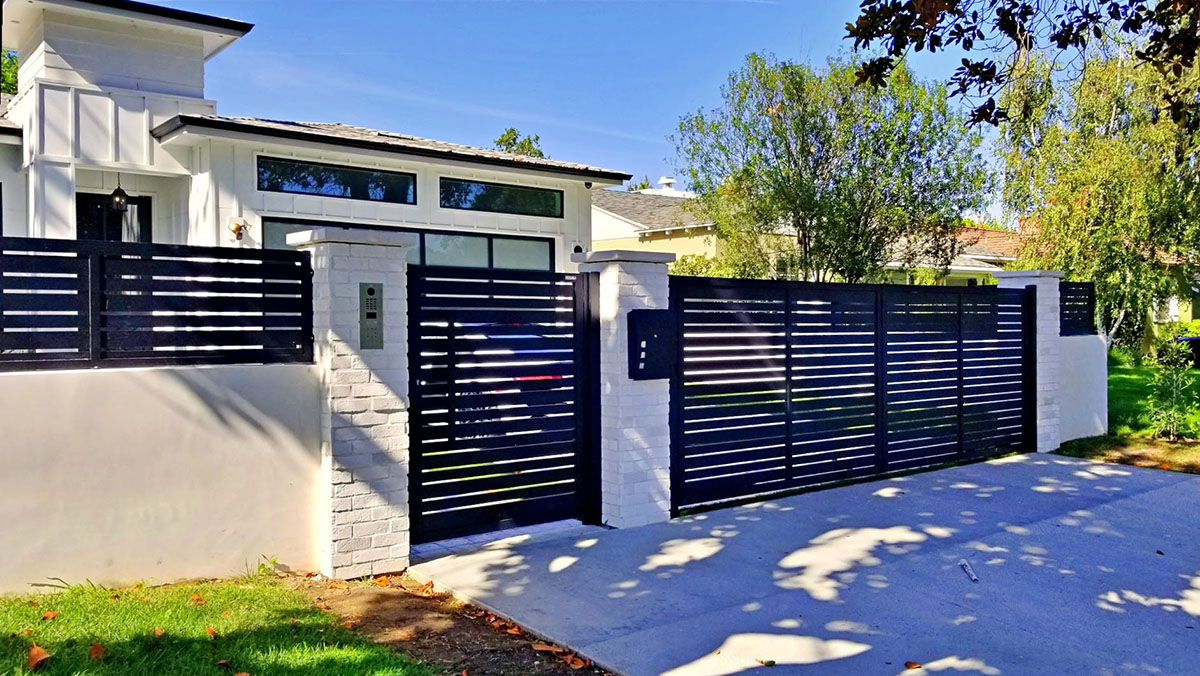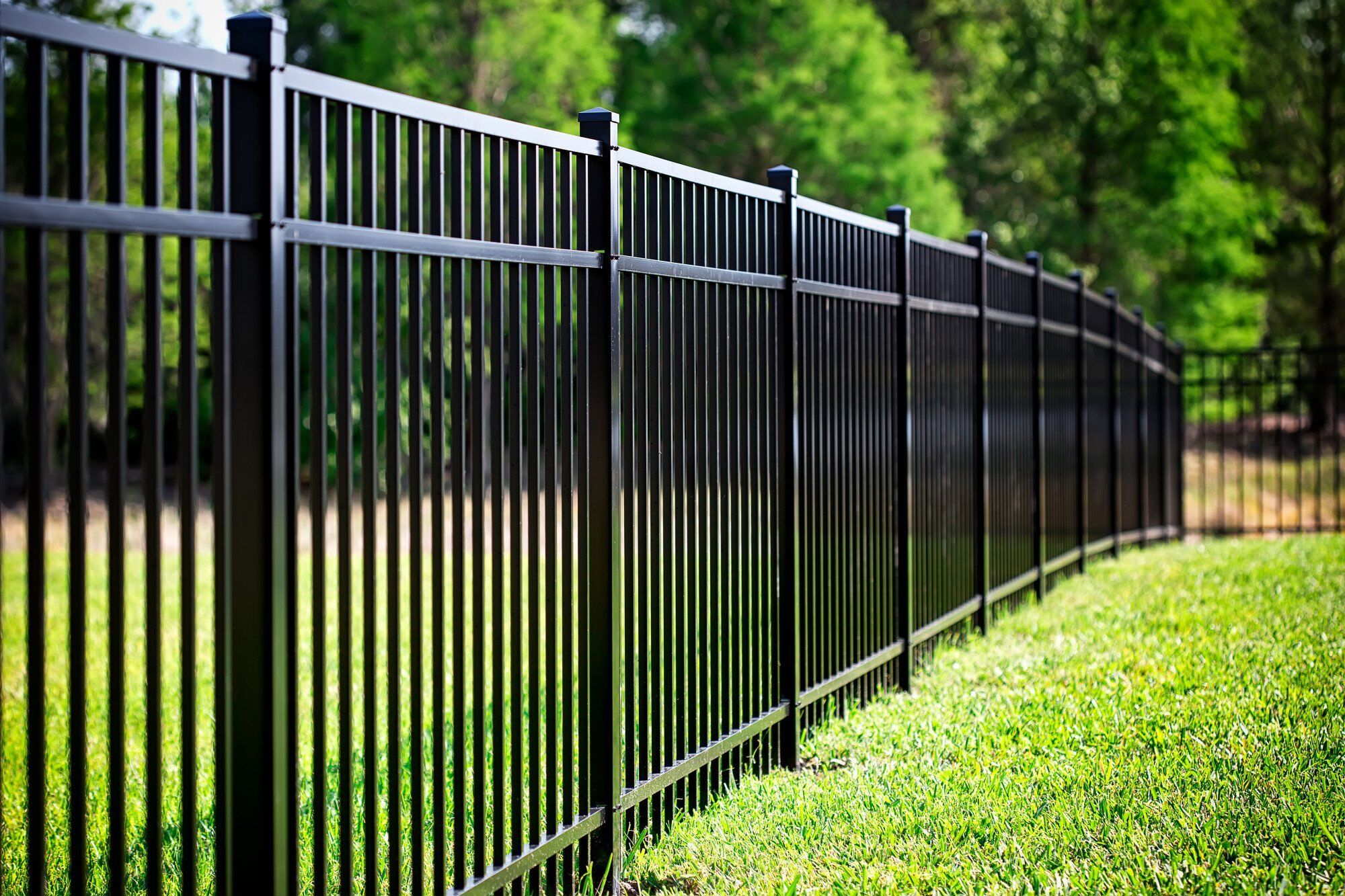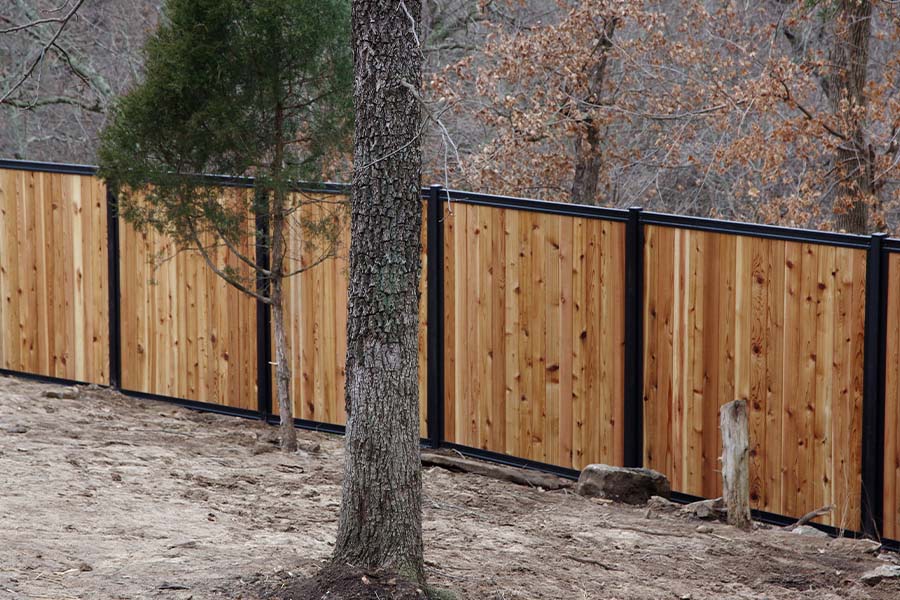All Categories
Featured

When it comes to picking the right fencing product for your residential property, wood, aluminum, and plastic are amongst the most popular choices. Below, we damage down the advantages and drawbacks of these 3 common secure fencing materials.
Timber Secure Fencing. Pros:
Visual Charm: Timber fences offer an all-natural, timeless look that matches most sorts of landscaping and architecture. They can be easily customized with paint or stain, offering you the freedom to create the perfect color and surface for your home. Adaptability: Wood can be made use of to produce a variety of fencing styles, from conventional picket fences to much more contemporary layouts like privacy fencings or rustic ranch-style fencings. If your requirements change, it's very easy to customize or include to over time. Cost: Wood is normally a lot more budget friendly than vinyl or aluminum, making it an eye-catching option for homeowners on a spending plan. The initial price of a wood fence is usually less than the other products. Cons:

Maintenance Needs: Wood fencings need routine maintenance, including staining, securing, or paint to safeguard them from weathering, rot, and insect damages. Without appropriate care, wood can degrade quickly. Toughness: Wood is at risk to damage from bugs like termites, and it can warp, crack, or split gradually as a result of direct exposure to the elements. In areas with extreme weather, wood might require to be replaced extra frequently than various other products. Limited Life-span: While wood fencings can last for several years with correct care, they generally have a shorter lifespan than plastic or light weight aluminum fences. Vinyl Secure fencing. Pros:
Low Maintenance: One of the biggest advantages of plastic fencing is its low upkeep needs. Unlike timber, vinyl does not need to be painted, tarnished, or sealed. It's immune to fading, cracking, or warping, making it excellent for house owners who desire an easy fencing. Resilience: Vinyl fencings are very durable and resistant to the elements, consisting of UV rays, rain, and humidity. They're additionally impervious to parasites, such as termites, that can damage wood fences. Range of Styles: Plastic fencings come in a large range of shades and styles, and several mimic the appearance of timber without the upkeep disadvantages. You can pick from privacy fencings, picket fences, and even more to match your requirements. Lengthy Life-span: With correct care, vinyl fences can last years, much longer than wood fencings, and they include warranties that offer assurance. Cons:
Higher Preliminary Expense: While vinyl fences can conserve money on upkeep for many years, they have a tendency to have a greater in advance price than wood fences, which may be a deterrent for some purchasers. Restricted Customization: While vinyl fencings are available in a range of shades and styles, they lack the modification versatility that timber gives. You're limited to the pre-designed panels readily available, which may not match every distinct aesthetic. Prospective for Breaking in Cold Climates: In severe cold temperatures, vinyl fences can end up being fragile and might fracture under effect, making them less suitable for areas with freezing wintertimes. Light weight aluminum Fencing. Pros:
Toughness and Strength: Light weight aluminum is a light-weight yet solid product that resists corrosion and rust, making it optimal for seaside areas or areas with high humidity. Aluminum fencings call for marginal maintenance and can stand up to the aspects for several years. Visual Appeal: Light weight aluminum fences supply a streamlined, modern appearance. They come in a variety of attractive designs and can be made use of to produce an extra contemporary or stylish seek your residential or commercial property. Low Upkeep: Light weight aluminum fencings don't need paint or securing, and they're immune to rust and deterioration, making them extremely reduced upkeep gradually. Protection: Aluminum fencings provide a greater degree of safety and security contrasted to plastic or timber fences since of their tough construction. They can be furnished with locks and gateways to offer a secure boundary around your residential or commercial property. Disadvantages:

Cost: Light weight aluminum fences are typically extra expensive than timber or plastic fences, both in regards to materials and setup costs. This higher rate factor can be a downside for budget-conscious house owners. Much Less Privacy: Light weight aluminum fencings typically have an even more open layout, with pickets spaced apart to allow exposure with the fence. This might not be the ideal selection for your residential or commercial property if personal privacy is a priority. Prone to Denting: While aluminum is rust-resistant, it can still be dented or bent if struck with force, such as by a car or heavy tools. While it will not rust, it might not retain its immaculate look if it obtains damaged. Which Product is Right for You? Selecting the ideal fence material depends on your certain requirements, budget, and lasting plans for your property. On the various other hand, if you require a durable, safe and secure fencing with a smooth look, light weight aluminum could be the right product for you.
Inevitably, consider your environment, maintenance preferences, and aesthetic desires when choosing on your secure fencing product. Each alternative has its weaknesses and strengths, but with the appropriate care and installation, all 3 can provide appealing and dependable boundaries for your residential property.
Latest Posts
Check Out Budget-Friendly Auto Repairs with Montclare’s Exclusive Service Specials
Published May 26, 25
1 min read
Uncover Cut Costs on Car Maintenance with Montclare Auto Repair’s Limited-Time Deals
Published May 26, 25
1 min read
Find Out Save Big on Car Maintenance with Montclare Auto Repair’s Limited-Time Deals
Published May 25, 25
1 min read
More
Latest Posts
Check Out Budget-Friendly Auto Repairs with Montclare’s Exclusive Service Specials
Published May 26, 25
1 min read
Uncover Cut Costs on Car Maintenance with Montclare Auto Repair’s Limited-Time Deals
Published May 26, 25
1 min read
Find Out Save Big on Car Maintenance with Montclare Auto Repair’s Limited-Time Deals
Published May 25, 25
1 min read